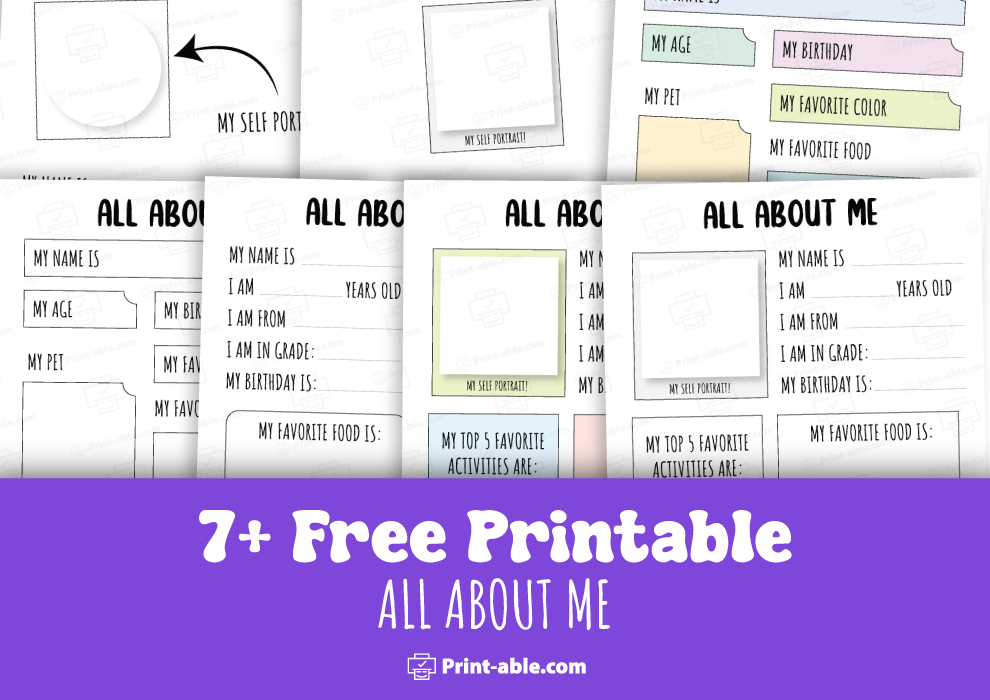Creating an “all about me” printable can be a fun and engaging way to share your personality with others. These printables offer a simple format for you to express your interests, hobbies, and unique traits, making them ideal for classrooms, parties, or personal reflection.
You can customize these printables to suit your style, whether you prefer a minimalist design or something vibrant and colorful. They serve as a great icebreaker in social settings or as a way to introduce yourself in community groups.
By using an “all about me” printable, you provide an opportunity for deeper connections with others. This resource not only reveals information about you but also sparks conversations, allowing you to learn more about those around you.
All About Me Printable Free Download
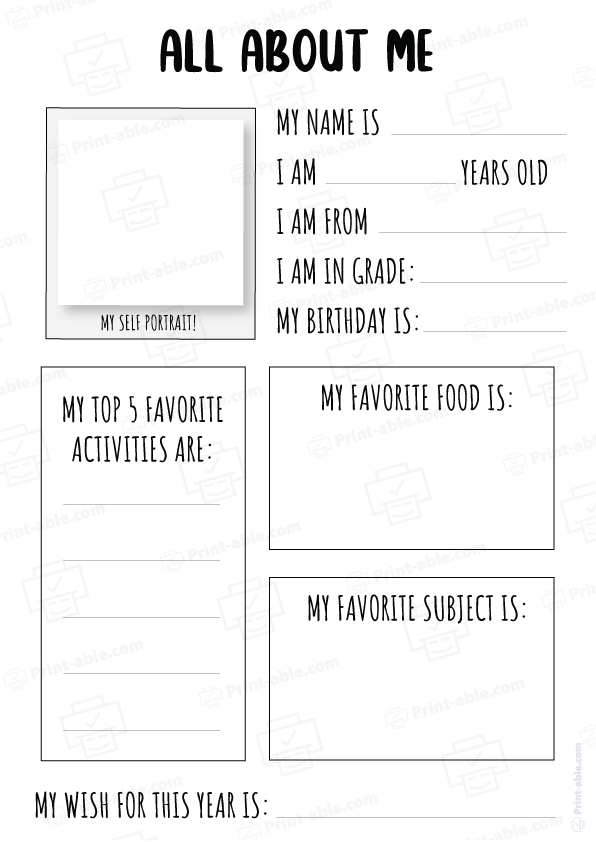
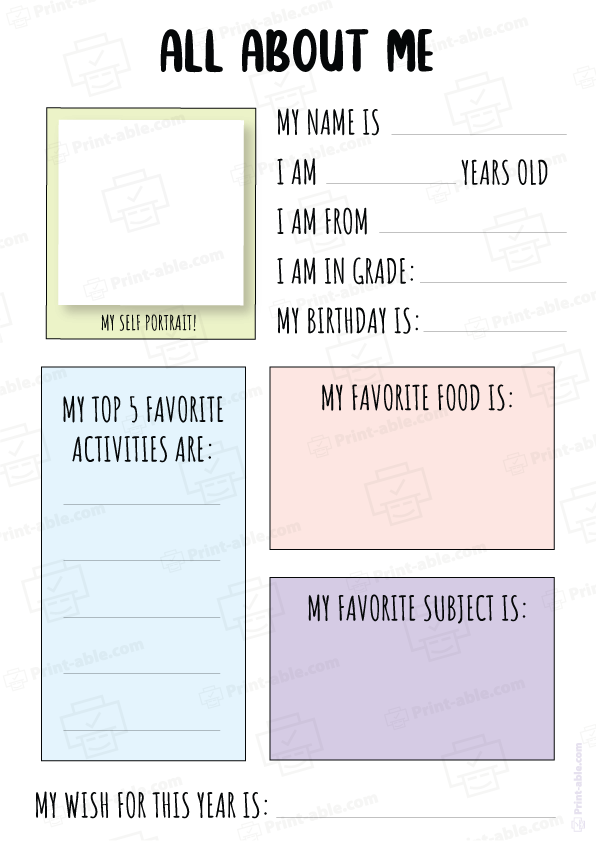
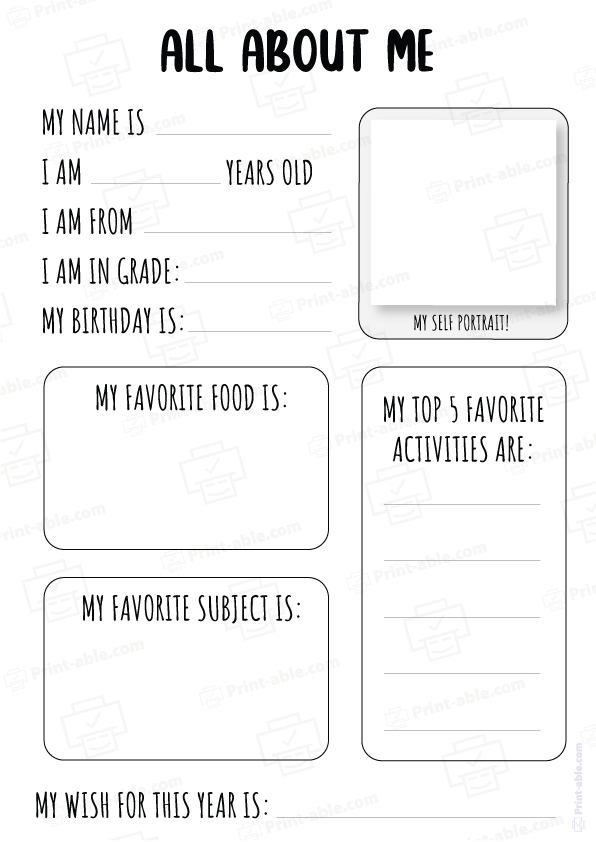
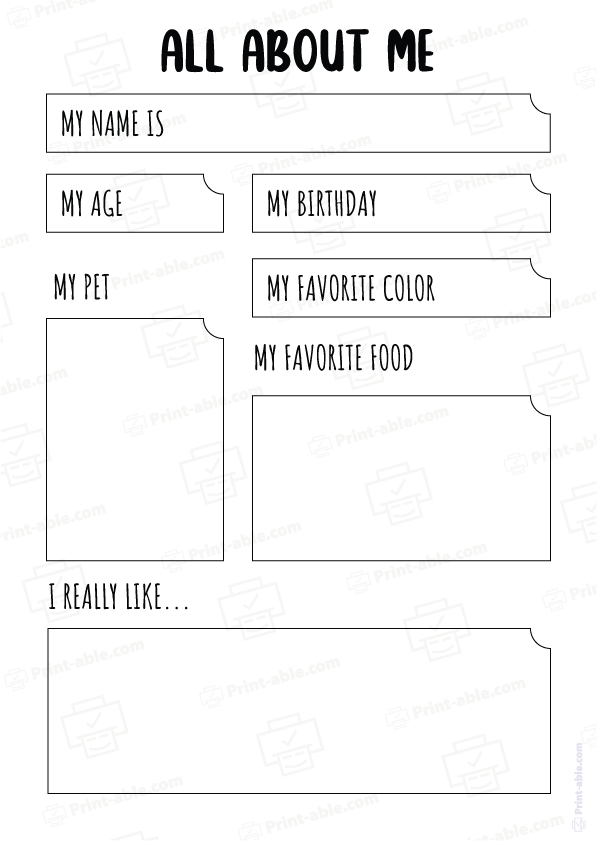
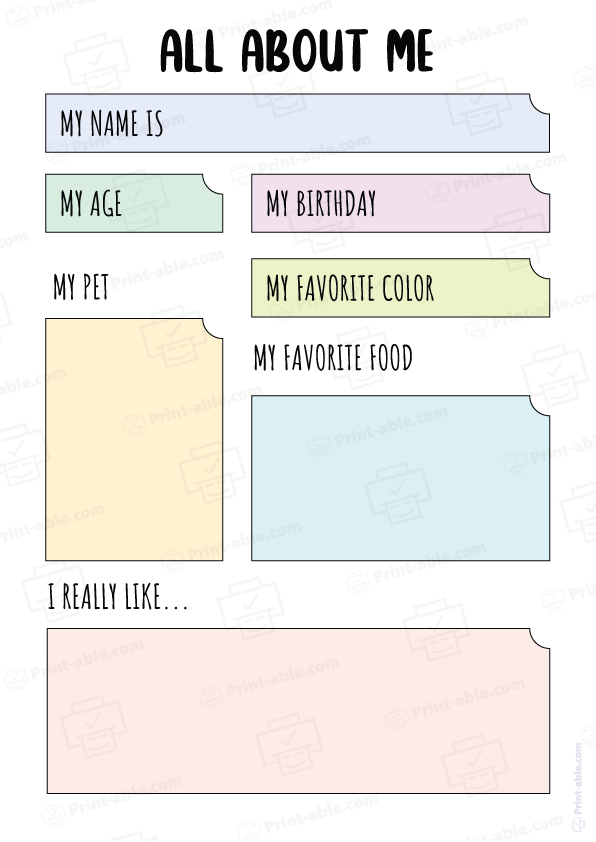
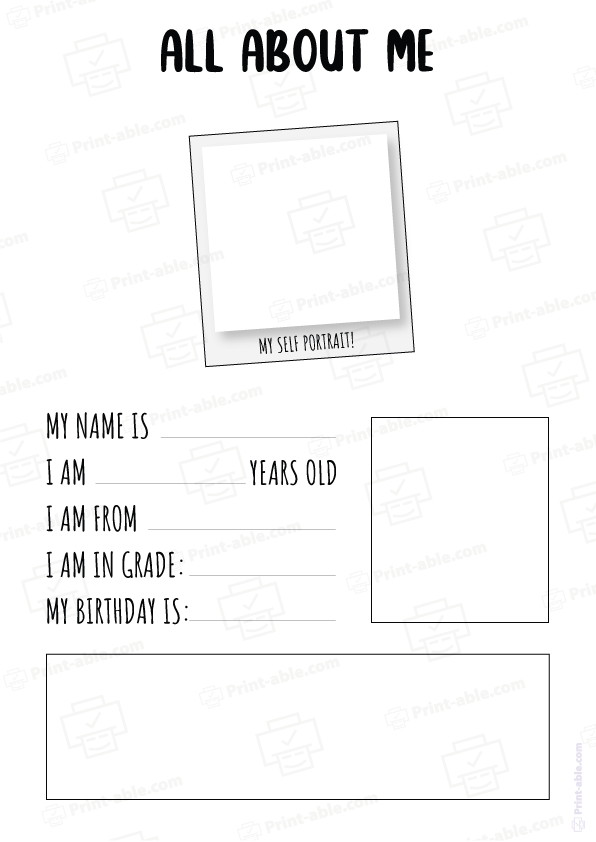
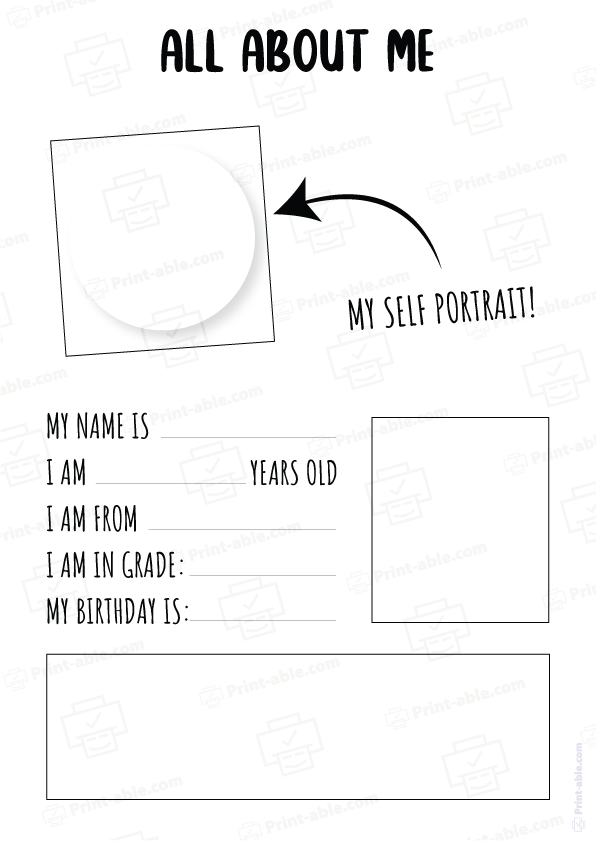
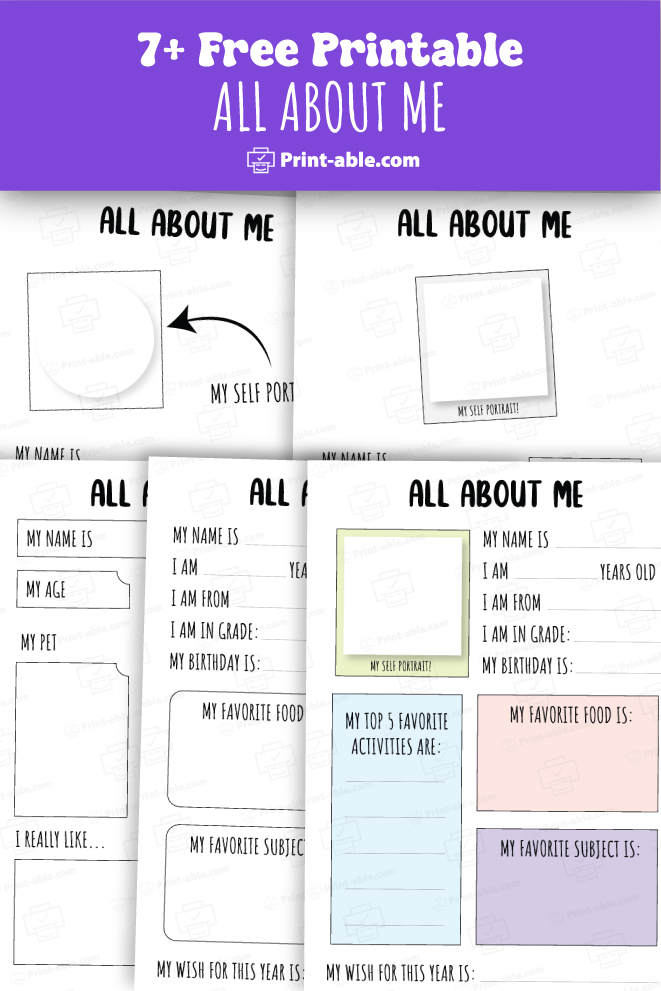
Creating an “all about me” printable can be a fun and engaging way to share your personality with others. These printables offer a simple format for you to express your interests, hobbies, and unique traits, making them ideal for classrooms, parties, or personal reflection.
You can customize these printables to suit your style, whether you prefer a minimalist design or something vibrant and colorful. They serve as a great icebreaker in social settings or as a way to introduce yourself in community groups.
By using an “all about me” printable, you provide an opportunity for deeper connections with others. This resource not only reveals information about you but also sparks conversations, allowing you to learn more about those around you.
Personal Information
This section covers essential details about personal identity. Key elements include your name, birthday, origin, and family background.
Name and Nickname
Your name serves as your primary identifier. It’s important to include both your full name and any nicknames you have. For example, if your name is Emily Jane Smith, you might prefer to go by Em or Emmy among friends.
When filling out the printable, remember to specify any other names you may use professionally or personally. This could include maiden names or surnames from previous relationships. Consider the significance of each name and how it reflects your identity.
Date of Birth
Your date of birth provides context about your age and generational influences. When documenting, be precise. For instance, if you were born on July 15, 1990, that date signifies your birth year and helps others understand your life experiences and milestones.
Including your astrological sign, such as Cancer for July, can also enhance this section’s personalization. This information may be relevant for social interactions and conversations, adding layers to your profile.
Place of Origin
Where you were born or raised can shape your cultural identity. Identify your birthplace clearly, such as “Chicago, Illinois” or “Sydney, Australia.” Adding specific details about your hometown enriches your narrative.
You may wish to include your ethnic background or cultural heritage. These elements reflect your history and can influence your perspectives and values.
Family and Pets
Listing your family members offers insight into your support system. Include details about your immediate family—parents, siblings, and significant others. Mention how many pets you own and their names.
For instance, “I have two siblings: a younger brother named Jake and an older sister named Sarah.” If you have pets, state their types and breeds, such as “I own a golden retriever named Max.” This information adds warmth and personal connection to your profile.
Interests and Favorites
Your interests and favorites shape your personality and provide insight into what you enjoy most. These aspects can be explored through various categories, including hobbies, foods, colors, subjects, and future aspirations.
Hobbies
Hobbies are essential for personal fulfillment and relaxation. They provide an outlet for creativity and can range from physical activities to artistic pursuits. Common hobbies include:
- Photography: Capturing moments and expressing creativity through visuals.
- Gardening: Working with nature and nurturing plants can be very rewarding.
- Crafting: This can involve knitting, scrapbooking, or other creative projects.
Each hobby offers unique benefits, such as stress relief and skill development. Engaging regularly in your hobbies is a great way to enhance life satisfaction.
Favorite Foods
Food preferences reflect your tastes and cultural influences. Identifying your favorite foods can reveal a lot about you. Consider these categories:
- Comfort Foods: These are often nostalgic and may include dishes like mac and cheese or pizza.
- Healthy Options: Foods like salads, smoothies, and grilled proteins can showcase your health-conscious choices.
- Cuisines: You might prefer Italian, Mexican, or Asian dishes, each offering distinct flavors.
Understanding your favorite foods supports healthier choices and enhances your dining experiences. Sharing meals with loved ones makes these favorites even more enjoyable.
Favorite Color
Colors can influence mood and convey personality traits. Your favorite color might indicate your preferences in style and environment. Here are a few considerations:
- Blue: Often associated with calmness and stability.
- Red: This color can represent energy and passion.
- Green: Typically linked to nature and tranquility.
Each color evokes different emotions and meanings. Identifying your favorite color can guide choices in clothing, decor, and even artwork.
Favorite Subjects
Your favorite subjects provide insight into your intellectual interests and strengths. These may vary based on personal experiences and educational influences. Commonly favored subjects include:
- Mathematics: This subject enhances logical thinking and problem-solving skills.
- Science: Fields like biology or chemistry spark curiosity about the world.
- Literature: Engaging with diverse stories and perspectives can foster empathy.
Identifying your preferred subjects can influence future educational or career paths. Emphasizing these areas can lead to personal growth and fulfillment.
Dreams and Aspirations
Your dreams and aspirations drive motivation and shape your future. They can range from career goals to personal achievements. Consider defining aspects like:
- Career Goals: Identifying your desired profession can guide your education and skill development.
- Personal Growth: Aspiring to develop new skills or improve traits reflects a commitment to self-improvement.
- Adventures: Traveling to new places, exploring cultures, or challenging yourself physically can expand your horizons.
Establishing clear aspirations can provide direction and a sense of purpose. Focusing on these goals can help you make informed decisions for your future.
